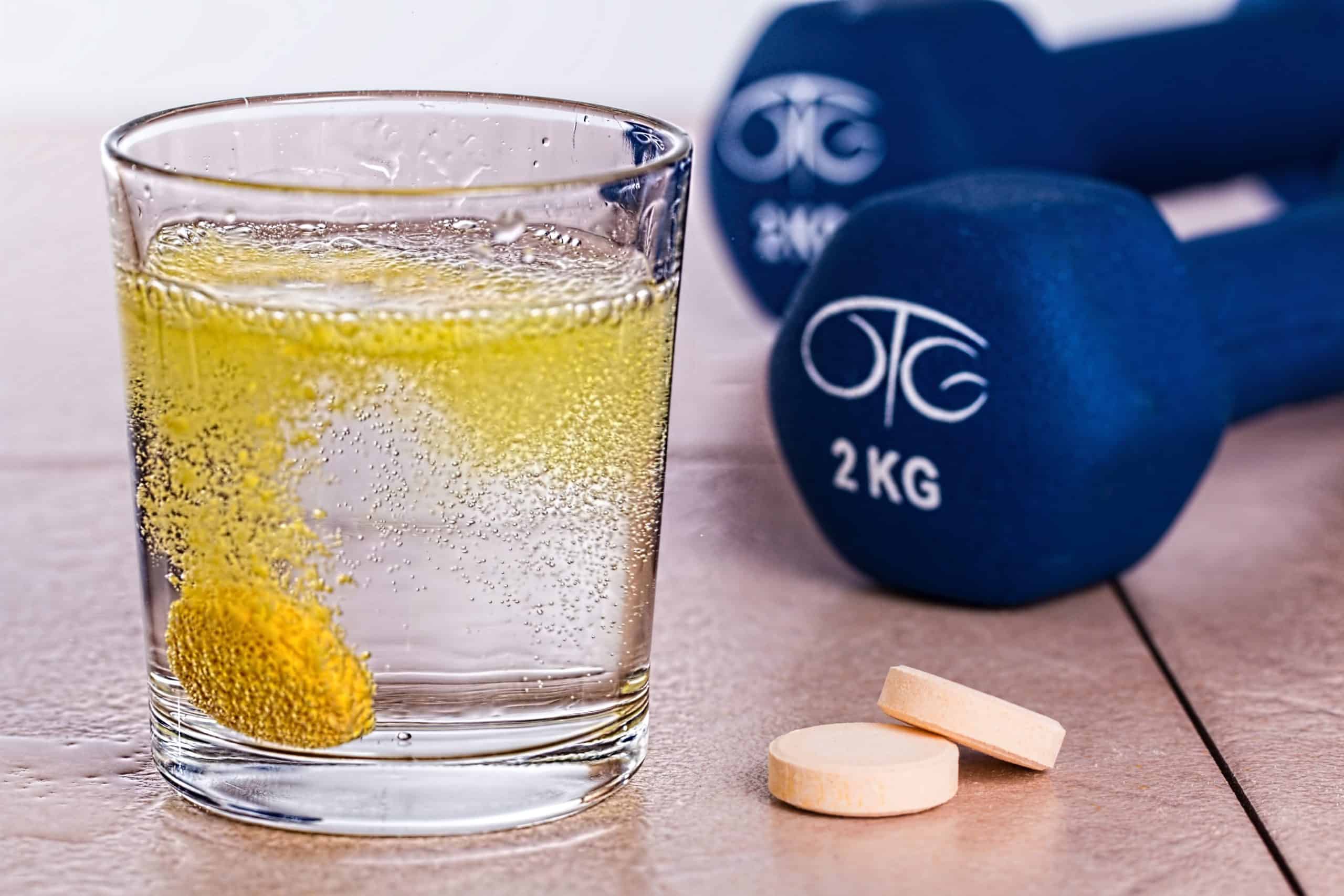When you’re busy, you don’t always have two hours on a given day to put into your workout. So the question becomes—how do you maximize the benefits of the workout you do have time for? While there is a lot of conflicting information about how much you should work out day to day and week to week, all the research agrees that any workout is better for your overall health than none.
But do the pre-workout supplements help you burn fat? The answer is yes, a couple of them can – but there are several things to consider before you start supplementing.
How diet factors into your workout
Losing weight and reducing body fat is a lot more complex than just counting carbs. A holistic approach is key to maintaining the benefits of your workout in the long run. Without the proper fuel, your workout can cause more damage than any good it might do. But should you eat breakfast and take a supplement for the energy you need, or opt for a pre-workout drink?
Ideally, a good meal with a healthy balance of complex carbohydrates, protein, and fat is eaten two to three hours before you work out. This will give you the energy you need no matter what type of exercise you’re doing.

What’s in your supplement?
Whether your pre-workout supplement comes in powder form or is already mixed into a beverage, you’ll want to keep an eye out for artificial flavors and sweeteners. The sugar alcohols in artificial sweeteners can cause bloating and gas that could make your workout unnecessarily uncomfortable. There is also evidence to suggest they can negatively affect your metabolic rate, so be mindful of what’s in your workout powder or drink.
The active ingredients in workout supplements for weight loss all proclaim spectacular benefits, like boosted energy, enhanced performance, and increased fat burning. While post workout drinks usually focus on aiding in muscle synthesis and muscle recovery, a pre-workout formula will aim to help you exercise longer and harder during your workout sessions. While the label may tout the benefits of whatever proprietary blend of ingredients they use, only some of them have held up under scientific research. And frankly, plenty of the ingredients in these dietary supplements are found in a normal, balanced diet.

The most promising pre-workout supplements
Caffeine
The main source of the energy boost that these supplements provide is the well-loved stimulant, caffeine. When taken in doses of 100-400 mg an hour or so before you work out, caffeine has been shown to improve brain functioning and metabolism. This is known as a thermogenic effect. If you’ve ever come across thermogenic fat burner supplements, caffeine is typically the main active ingredient.
With greater energy levels, focus and motivation, your workout can be more productive and more effective at burning calories, which is helpful for any type of training routine. Of course, you don’t need thermogenic supplements to get this effect – you can often get the same results from a large cup of coffee. And if you’re already drinking one every morning, combining it with the high doses seen in the supplements can leave you feeling jittery and anxious.
Caffeine is also part of green tea’s increasing popularity for weight loss. Brewed green tea contains less caffeine than coffee but is high in beneficial antioxidants. Green tea extract, marketed as fat burner supplements and weight loss pills, is more concentrated and can be harmful to the liver if overused.
Another of the popular thermogenic ingredients for fat loss is green coffee bean extract. Again, caffeine is behind the way this supplement enhances your body’s ability to work out and lose weight.
Creatine
One of the most popular supplements for bodybuilders, creatine is used to boost performance in high-intensity exercises like weight lifting and sprinting. By increasing the stores of creatine in your muscles, you’ll boost your workout performance and increase your muscle mass development. There are several types of creatine supplements available, but creatine monohydrate is the most widely used form.
Real results with a personalized weight loss program
Take the quiz!

Some people opt to start off their creatine supplementation by “loading,” which involves taking it in high doses for a few weeks. Because it can upset your stomach in high doses, people who are loading should avoid pre-workouts that contain creatine.
Many people take creatine because they think it burns fat, but you won’t see fat loss unless you are supplementing alongside strength training. The more muscle mass you have, the more calories you burn when you’re working out, and creatine does boost your muscle growth. But if your workout regime consists mostly of endurance training, or if you’re not working out at all and trying to lose weight through diet, you’re not getting any help by taking it.
Sodium Bicarbonate
Baking soda is a common household staple, and it’s an active ingredient in many deodorants, but athletes use it for more than odor control. It isn’t common to see it on the list of ingredients in your pre-workout supplements, but it is worth considering.
Research backs up the boost to athletic performance that a couple of teaspoons of sodium bicarbonate can give you. Because it’s alkaline, it neutralizes acids that build up in the muscles. Because weight lifting relies on your anaerobic metabolism for energy, lactic acid will start to slow you down. Bodybuilders that use sodium bicarbonate are often able to do more reps before getting fatigued. Runners can also have improved endurance from reduced muscle fatigue on the tail end of their runs for the same reason. It also seems to improve strength and coordination in athletes who take it before a workout, although the reasons why are unclear.
It’s not for everyone. It can cause an upset stomach taken in the dosage required for you to get a benefit. This can be mitigated by splitting it up. If you are on a low salt diet, the high levels of sodium can raise your blood pressure, so it should be avoided.

Less-promising (but still interesting) supplements
The rest of the ingredients in your workout supplements may or may not have any impact on the fat-burning or energy-boosting aspects of your exercise program.
Amino acids
Of the 20 amino acids used in protein synthesis, nine of them are only obtained through diet (these are called the essential amino acids). The rest can be synthesized by your body, but are also found abundantly in foods with protein. While research has shown that amino acids are critical for muscle recovery and production, there is no evidence that they can boost exercise performance.
Beta-alanine is one amino acid popular in pre-workout supplements. This is a non-essential amino acid that is not used in protein synthesis. Instead, it is needed to generate carnosine, a substance that lowers the levels of lactic acid in your muscles. The theory is that this helps to boost athletic performance, but as with other amino acid supplements, there isn’t much proof that it works.
Another popular amino acid-based supplement is citrulline, or citrulline malate. Citrulline is a non-essential amino acid that, like beta-alanine, does not play a role in protein synthesis. Citrulline supports your body’s natural urea cycle – harmful waste elimination through the urine. It may also help build muscle by promoting vasodilation, or the widening of blood vessels that lowers blood pressure and increases blood flow.
Your diet should consist of a variety of whole proteins, which will contain all of these amino acids in different balances. Focusing too heavily on one protein source, like beta-alanine supplements or whey used in many protein powder mixes, can lead to lower levels of certain amino acids. This is why the more high-quality protein powders will use several sources of protein in their ingredients, such as whey protein plus egg, or pea and soy protein.
B-Vitamins
Your body relies on B-vitamins for energy expenditure. They are a common energy boosting ingredient in many pre-workout supplements and workout drinks, although sometimes you will find niacin alone. A balanced diet should provide you with plenty of B-vitamins, and taking too many can cause gastrointestinal and nerve problems. Although they are a common ingredient in energy drinks, B-vitamins are not stimulants – though people with deficiencies will likely feel an energy boost.
Of course, certain health factors can deplete your reserve of B-vitamins, and a supplement can be the boost you need to get you on track for your exercise program. Anxiety, stress, alcohol, and smoking all can drain your B-vitamins and leave you without the energy you need to get back in shape.
Nitric Oxide Precursors
Certain dietary nitrates, like beetroot juice, are a common additive to your supplements. Because nitric oxide can improve blood flow by relaxing your blood vessels, it’s thought that they can enhance your performance during exercise. This may support fat oxidation, the breakdown of fatty acids. However, more broad studies need to be done to confirm if these nitrates in the amounts found in fat burning supplements really result in boosted blood flow and provide any added benefits to your training.

The Bottom Line
If you’re using a prework supplement with high-quality benefits, and you’re feeling the results, then there’s no need to give it up. But a big cup of coffee and a comprehensive nutrition plan full of healthy, whole-food natural ingredients can be just as effective at burning fat and building lean muscle. That’s why Noom is here to help. Find out how we can help you lose weight sustainably.





